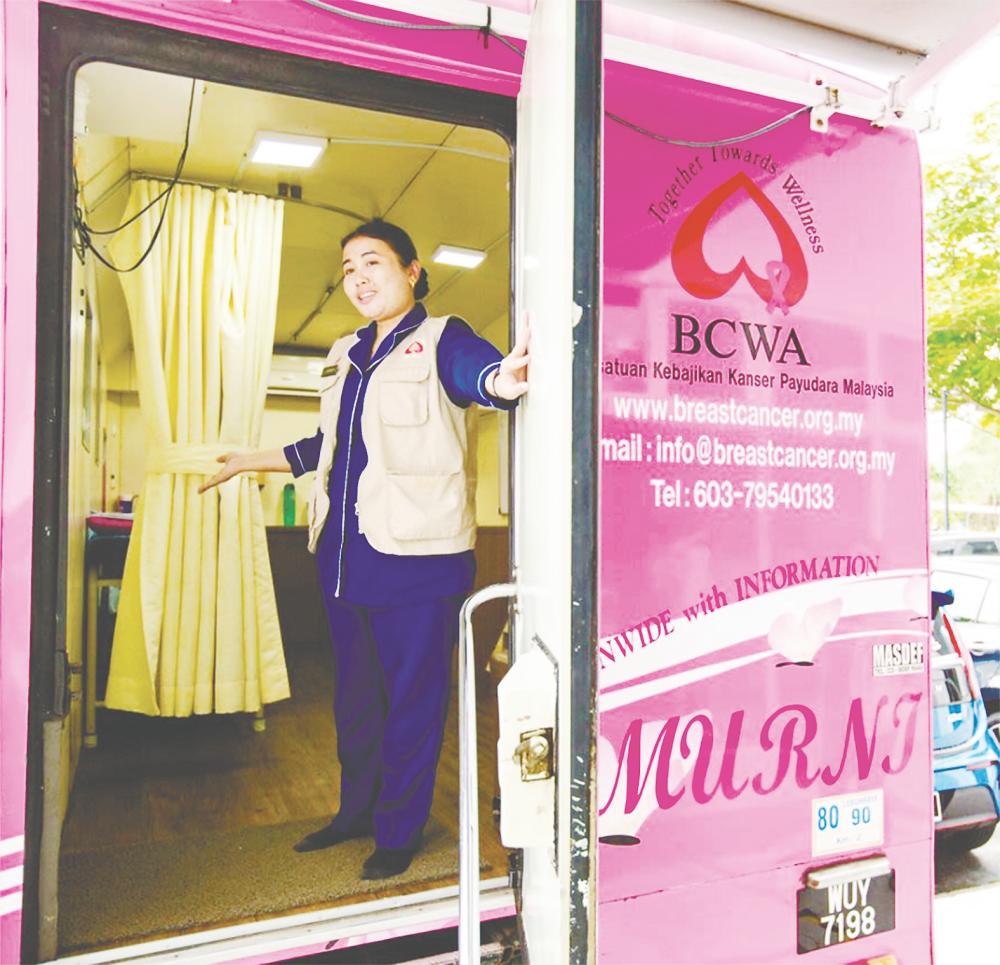PETALING JAYA: Women’s cancer testing has declined globally, raising alarm among health experts. The latest Hologic Global Women’s Health Index, one of the largest global surveys on women’s health and well-being, revealed that only 10% of women worldwide reported being tested for any type of cancer in the past year.
This marks a two-percentage-point decrease from the previous two years, underscoring a troubling trend in cancer detection.
In Malaysia, breast cancer remains the most common form of cancer among women, but screening rates are unfortunately low.
Awareness about breast health practises, such as monthly self-examinations and annual clinical breast exams, remains suboptimal.
Breast Cancer Welfare Association Malaysia (BCWA) public relations and partnerships manager Sumitra Selvaraj, attributed these low rates to barriers such as cultural stigma, fear of diagnosis, financial constraints, and misinformation.
“The overall percentage of women performing monthly breast self-examinations (BSE) or going for an annual clinical breast examination is still very low, and this very likely translates into low uptake rates for mammograms,” she said.
Despite these challenges, BCWA’s outreach efforts are yielding results. In 2024, the organisation conducted 7,652 free clinical breast examinations, detecting 338 abnormal findings.
“Our focus is on early detection. Screening numbers will only rise when early detection is normalised as self-care,” Sumitra said, adding that BCWA actively takes mobile clinics to underserved areas and collaborates with local leaders to address cultural sensitivities.
Another major hurdle is misinformation, with many women believing they are not at risk if they lack a family history of breast cancer, but Sumitra debunked this.
“A staggering majority of breast cancer cases occur sporadically, with only 10% to 20% linked to family history.”
National Cancer Society Malaysia (NCSM) assistant director (medical) Dr Ruthresh Rao Subramanyam said other cancer screenings among women face similar challenges.
“The NCSM is working with the Health Ministry to develop a national database to track screenings across NGO, private hospitals and public healthcare facilities.
“In rural areas where healthcare facilities and trained personnel are scarce, accessibility remains a major barrier. Long waiting times and travel costs further discourage women from getting tested,” he said, adding that many are unaware of free or subsidised screenings, leading to missed opportunities for early detection.
Ruthresh also highlighted misconceptions and stigma around reproductive health that prevent many women from seeking screenings.
“In some households, patriarchal norms place men as the decision-makers regarding healthcare. There have been cases where women do not seek screenings because of their husband’s disapproval.”
He said NCSM’s national screening efforts indicate that participation is lowest in the east coast states and Sabah and Sarawak.
To address this, several initiatives have been launched to improve accessibility and awareness.
The “Leaving No One Behind” campaign, supported by corporate sponsors, offers free human papillomavirus vaccines to help eliminate cervical cancer. It has benefited about 300,000 Malaysians.
In October 2024, the Pink Etiqa campaign provided free mammograms to over 6,000 women through mobile clinics nationwide.
In 2023, NCSM conducted over 120,000 screenings and reached more than a million people with awareness campaigns.
“We have also partnered with Gene Solutions for multi-cancer early detection tests and worked with AstraZeneca on post-pandemic awareness campaigns. Government-backed mobile clinics help bring screenings to rural communities,” he said.
Ruthresh emphasised the importance of early detection and shared a story of a woman from rural Pahang who was diagnosed with Stage 2 breast cancer during a community screening. With immediate treatment, she has remained cancer-free for five years.
“This is why screenings matter. When detected early, cancer is treatable,” he said.
He urged women to prioritise regular screenings as an essential part of self-care from the age of 20 and undergo an annual clinical breast examination. Those interested can reach out for support and guidance.
theSun reached out to the Health Ministry several times between Jan 30 and yesterday for the latest statistics on cancer cases among women, but has yet to receive a response as of press time.









